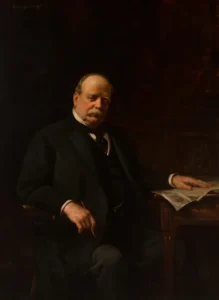After a crisis there is a tendency for temporary measures to become permanent.
Western Australia has seen many past emergency actions set in stone. After World War II, we were left with marketing boards, rationing and central planning. Many of these war-time measures remained for decades. It was not until 2016 that Potato Marketing Board was dismantled – over seven decades after the last bomb was dropped.
Temporary indeed!
The COVID-19 crisis serves as a real time case study of panic and public policy responses. Will we emerge tied up in even more red tape, needing to ask government for permission for even the smallest commercial decision?
The legitimacy of the immediate public health protocols put in place to deal with the crisis is not the point nor the focus of this article. Rather, it is what comes next and who decides how we conduct business which is up for debate.
While the McGowan government’s instituted measures to contain COVID-19 have been widely supported thus far, reopening the economy is another question. How do taxpayers ensure we avoid a range of legacy policy settings, deficits, legislation, and other prohibiting structures? Here are a few of my initial thoughts:
- Implement temporary, one-off measures. By freezing electricity rates, the government created a headline, but it will mean that there is a major drain on taxpayers when the crisis is over. If the government wants to help on the grounds of equity, they should instead use the Synergy billing system to deliver a one-off credit of perhaps $300-$400 which will provide help now when it is needed the most. This can be funded directly by government. Rates, however, should rise with the cost of production and distribution to remove the distortionary effect of cross-subsidisation by taxpayers. Electricity pricing can be adjusted to reflect the cost of services rather than serve as a non-means tested and universal, social welfare tool.
- Implement sunset mechanisms. US President Reagan rightly observed that “nothing lasts longer than a temporary government program.” To deal with this phenomenon, mechanisms that ensure all COVID-19 measures automatically dissolve and are cancelled after 12 or 18 months should be put in place. Any measures which are required beyond that time period ought to be formally debated and legislated to ascertain if there still is a need. The optimal time to make binding decisions is not in the middle of a crisis, but later, when there is more transparency and adequate time for sober reflection.
- Clarify ‘stimulus’ measures. This used and abused term allows for many unnecessary projects, handouts, and programs to be justified. Shovelling cash out to citizens is akin to a sugar hit for the political class. Real stimulus involves removing impediments to job creators. One way to do this is by cutting or abolishing payroll tax and removing stamp duty.
- Define health needs and bureaucratic wants. There are several justified health and social distancing measures which will become a regular feature of our lives for the foreseeable future. The need for these strict protocols will likely diminish over time, however, overzealous bureaucrats and inspectors, who want to justify their existence after the immediate crisis, will be difficult to dislodge. As unemployment rates grow, we must be vigilant in demanding that these inspection and monitoring roles be wound back, rather than kept going as job-creation for busybodies wanting to tell people how to live their lives.
- Return local governments to rates, rubbish, and roads. Before COVID-19, many local governments had taken on an oversized role beyond providing core services efficiently. A number now want to provide a direct economic ‘stimulus’ to their local community by freezing council rates. By freezing rates, local government councils are avoiding the real issue which is exploding payrolls and expenses, and without addressing these underlying causes, taxpayers will ultimately absorb the costs in another form. Local government should follow the lead of all other organisations – cut non-core activities and adapt with less revenue. If they are unclear about how to do this, they could perhaps have a chat with the local coffee shop owner who is likely serving, cleaning, and cooking by themselves as they struggle to keep their doors open.
- Encourage fiscal restraint. The Western Australian opposition leader criticised the McGowan government for hoarding cash and for their inadequate ‘stimulus’ measures. Instead, the opposition should be supporting fiscal restraint and even making it an area of bi-partisan agreement and norms.
The upcoming adjustment period, be it U, V or otherwise shaped, will be messy and painful. However, by constraining government where possible, during the recovery process and ensuring bad habits are not locked-in, we can avoid growth-sapping and job-destroying permanent arrangements.






